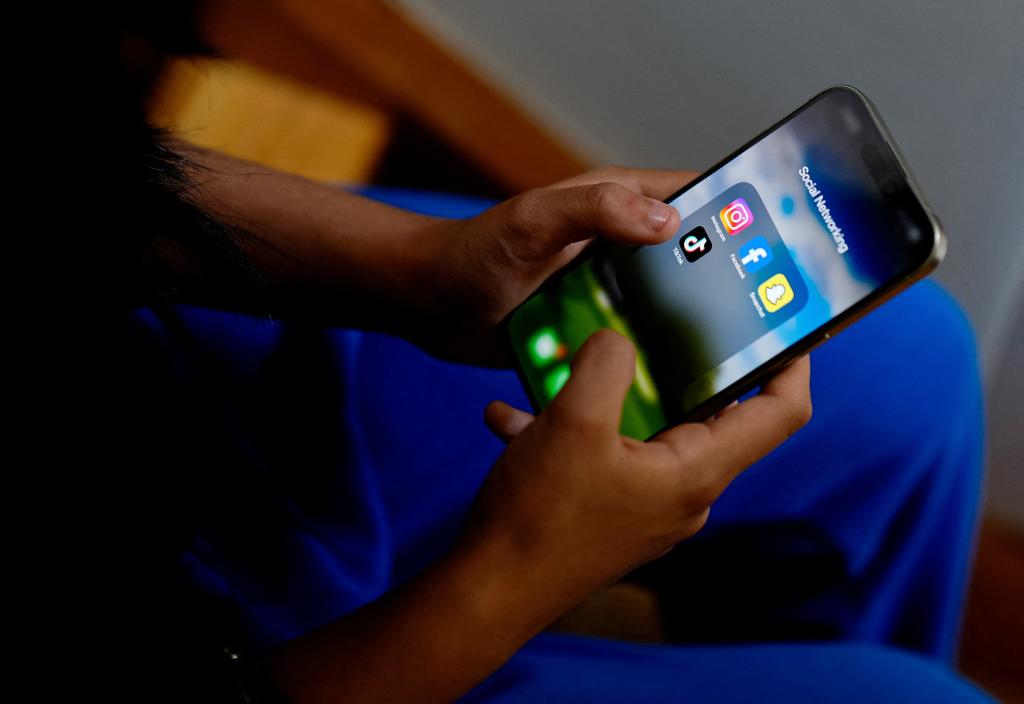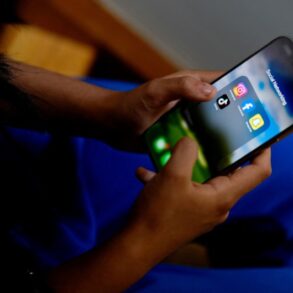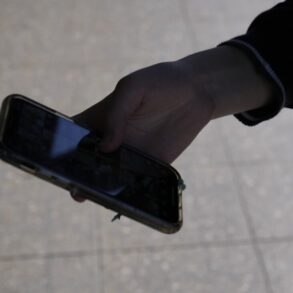
Australia just passed the world’s toughest social media ban, blocking kids 16 and under from surfing platforms like Facebook, TikTok and Snapchat — and threatening to punish the companies if they don’t comply.
The world-first law — which both chambers of the Australian government approved this week by wide margins — will make the platforms liable for fines of up to $33 million if they fail to stop kids from creating accounts. The companies have a year to figure out how to implement the ban.
“The basis for this is that there is a feeling amongst the majority of Australians that social media does more harm than good,” Rob Nicholls, a senior research associate in the Department of Media and Communication at the University of Sydney, told NBC News.
Messaging apps, gaming platforms and YouTube are exempt.
The other platforms may be in a bind as they try to figure out how to police their users’ ages.
Amendments tacked onto the bill bolster privacy protections, making it illegal for the companies to force users to hand over government-issued identity documents such as driver’s licenses — or digital IDs through a government system.
Still, supporters say the ban will help preserve kids’ fragile mental health, which study after study has shown is hurt by social media.
Extensive use can lead to body image issues among young girls, for example. And the misogynistic content posted online has damaged impressionable young boys, advocates say.
But critics worry the law will cut into the privacy of those who must now establish their age — and say the ban could isolate vulnerable kids who use social media to find support.
“This policy will hurt vulnerable young people the most, especially in regional communities and especially the LGBTQI community, by cutting them off,” Sen. David Shoebridge, of the minority Greens party, told the Senate.
Opposition Sen. Maria Kovacic said the bill was necessary anyway.
“The core focus of this legislation is simple: It demands that social media companies take reasonable steps to identify and remove underage users from their platforms,” Kovacic told the Senate.
“This is a responsibility these companies should have been fulfilling long ago, but for too long they have shirked these responsibilities in favor of profit.”
Most Australians agree with the ban, according to a YouGov poll released Tuesday that found 77% support among the citizenry.
As do several parents of kids who were victimized online — such as Sonya Ryan, whose 15-year-old daughter Carly was murdered by a 50-year-old pedophile who pretended to be a teenager online.
“It’s too late for my daughter, Carly, and the many other children who have suffered terribly and those who have lost their lives in Australia, but let us stand together on their behalf and embrace this together,” she said.
Ryan also called the Senate vote a “monumental moment in protecting our children from horrendous harms online.”
Wayne Holdsworth, father of teen son Mac died by suicide after an online sextortion scam, advocated for the law and was thrilled that it passed.
“I have always been a proud Australian, but for me subsequent to today’s Senate decision, I am bursting with pride,” he said.
The platforms themselves, including Google and Meta, have claimed the law will be unworkable and urged lawmaker to delay the vote until June, when the government releases a long-awaited report about age assurance tech.
Other opponents say the ban drive kids to the dark web and reduce incentives for the companies to improve online safety, among other things.
“The government is running blindfolded into a brick wall by rushing this legislation,” said Christopher Stone, executive director of Suicide Prevention Australia, the governing body for the suicide prevention sector.
“Young Australians deserve evidence-based policies, not decisions made in haste.”







